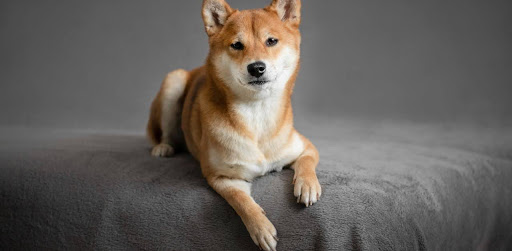
Introduction: Famous for their lively dispositions and alluring attractiveness, Shiba Inus are known to be cherished friends. But like every dog breed, Shiba Inus are prone to myths, the most common of which is that they are aggressive. In this piece, we’ll explore the subtleties of Shiba Inu’s behaviour, busting myths about aggression and illuminating the variables that affect their temperament.
The Fallacy of Aggression in Shiba Inus
Despite their diminutive stature, Shiba Inus are mistakenly classified as violent dogs rather frequently. Several things contribute to this misunderstanding, such as their self-assured manner, assertiveness, and sporadic aloofness from strangers. However, it’s critical to understand that aggressiveness and assertiveness are different.
Identifying the Temperament of Shiba Inus
To properly understand Shiba Inu behavior, one needs to study the temperament and traits of the breed. Dogs with a strong sense of self, intelligence, autonomy, and independence are called Shiba Inus. The breed is recognized for its audaciousness, self-assurance, and lively disposition, which may be interpreted as hostility by those unfamiliar.
Factors Affecting the Behavior of Shiba Inus
Shiba Inus’ behaviour is shaped by several elements that affect how they react to different stimuli and situations:
Socialization: Early and appropriate socialization is essential to forming a Shiba Inu’s behaviour. Introducing them to various individuals, creatures, settings, and encounters fosters self-assurance and teaches them suitable social behaviours.
Training: Consistent, positive reinforcement-based training is crucial to help shape desirable behaviour in Shiba Inus. Even though they are rapid and intellectual learners, they question authority and express their independence. Therefore, teaching methods must be patient and consistent.
Genetics: like all dogs, Shiba Inus are largely shaped by their genetic makeup. Although the breed does not naturally have a violent temperament, individual dogs may have different temperaments depending on their ancestry and genetic makeup.
Environment: A Shiba Inu’s upbringing and living conditions impact its behaviour. While abuse or neglect can result in behavioural problems, a steady, caring environment that provides mental and physical stimulation produces a well-balanced dog.
Taking Care of Behavioral Issues
Although Shiba Inus are not naturally aggressive, they may display behavioural issues that need to be addressed and dealt with:
Reactivity: When faced with specific stimuli, such as strangers, other dogs, or strange circumstances, Shiba Inus may act reactively. Appropriate management and training methods can reduce reactivity and impart substitute coping skills.
Resource Guarding: Certain Shiba Inus may display possessiveness towards food, toys, or other items as a resource guarding behaviour. Training techniques focusing on positive reinforcement can reduce resource guarding and encourage collaboration and sharing.
Fear: Shiba Inus may exhibit fear in some circumstances, especially if they have not received enough socialization or have had unfavourable experiences. Desensitization methods that are patient and kind can help reduce fear-based behaviours and boost confidence.
Conscientiousness in Ownership and Administration
To encourage positive behaviour in Shiba Inus, responsible ownership and management are crucial:
Early Socialization: As soon as possible, begin socializing your Shiba Inu puppy by introducing them to a variety of people, animals, and settings in a controlled and positive way.
Positive Reinforcement Training: To encourage desired actions and discourage undesired ones, use positive reinforcement strategies, including snacks, praise, and prizes.
Be Patient and Consistent: Watch your Shiba Inu’s development patiently and consistently. Recognize that modifying behaviour takes time and effort, and refrain from using harsh or punitive measures.
Seek Professional Assistance: Be bold and consult a behaviourist or professional dog trainer if your Shiba Inu is acting up. They can offer specialized guidance and assistance based on your dog’s particular requirements.
Concluding Remarkable Conduct in Shiba Inus
In conclusion, although some people may view Shiba Inu as aggressive, they are not naturally aggressive. Fostering positive behaviour in Shiba Inu requires understanding the breed’s temperament, handling behavioural issues, and implementing appropriate ownership practices. Shiba Inus, recognized for their loyalty, intelligence, and lively personalities, may become fantastic companions if given the right care, patience, and consistency.

